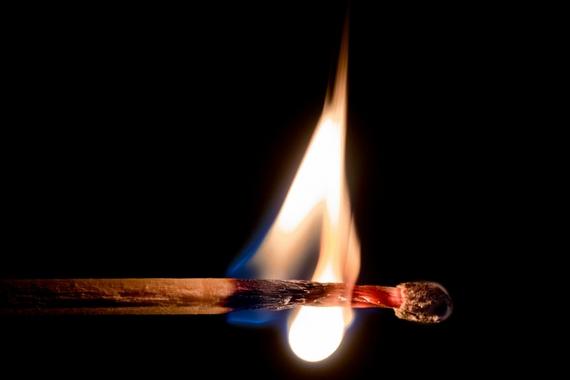Two years ago, Michelle* was a thriving real estate mogul in Seattle, and cofounder of her own business. Her company sponsored elite events from Vancouver, B.C., to Los Angeles and contributed to many philanthropies.
But at the age of 28, she did what many other successful millennial women do: She burned out. She scaled back on clients, travel, and events. Eventually, with the support of her husband, she decided to call it quits and take a sabbatical.
Expectations
Michelle isn’t alone. The trend of young women burning out by the age of 30 is very real and unfortunately common. A study by McKinsey shows that women account for 53% of corporate entry-level jobs, but women only hold 37% of mid-management roles. That number drops to 26% for vice presidents and senior managers, indicating a major gender disparity higher up the corporate ladder. As only 11% of women choose to leave the workplace permanently to have children, the other reason for this gap can be traced to high expectations that companies place on their employees in always-connected work environments.
But many of those high expectations can also be self imposed. Jenny Blake was thriving when she began her career at Google. But then she started to burn the candle at both ends. She was working full-time as a career development program manager while writing a book on nights and weekends. “I didn’t realize it at the time, but I was in the fast lane to burnout. My pace was not sustainable, and I only realized it after I crashed–just weeks before my book was set to launch.”
Blake believes part of the reason for this burnout among millennial women is because of how connected their companies expect them to be. She says:
We are in unprecedented times in terms of the global, always-on organization. It takes a tremendous amount of discipline not to check email at night or first thing in the morning, and not all office cultures (or managers) endorse or demonstrate that restraint themselves. Work comes in at all hours, and it can be hard to create boundaries that keep it contained and allow for proper rest and renewal.
For younger women in particular, it can be hard to say no, especially in competitive jobs or industries where there would be a (perceived) line out the door for their replacement.
Why women?
A study from the University of Kansas found that women are burning out faster than men after looking at attrition rates of journalists. According to the research, women reported higher levels of overload and intention to leave the field.
The author of the study, professor Scott Reinardy, “examined the numbers through gender socialization theory, which claims that society puts certain expectations on people based on their gender from a very young age. Where women are more often expected to provide the majority of family care and raise children, men are expected to be the breadwinners and put work obligations before family. That was supported by the findings showing that women experience significantly higher rates of role overload, or feel that they are unable to complete their assigned duties in the work time allowed.”
An uncertain future
But beyond high expectations, many millennials burn out at around age 30 because they are unhappy in their jobs and don’t see a clear career path. Melanie Shreffler formerly at Ypulse (currently the Senior Editorial Director, Cassandra Report) tells Forbes, “You can’t see the end of the tunnel because there are so many twists and turns. It’s impossible to see what life will be like in 20 years these days. It’s hard to look just three to four years in the future. They don’t know what they are striving for, which makes it really hard to move forward.”
Michelle suggests that young women who find themselves in similar situations not get overwhelmed by where they are in the big picture, and instead focus on the process as a learning experience. “One life experience just leads to the next, regardless if it is good or bad,” she says.
Post-burnout: passion and productivity
Both Michelle and Blake say that the best thing they did after realizing they were burning out was to take a break and go easier on themselves, and to be more intentional about their next moves.
“If it isn’t fun and it isn’t your passion, you will burn out,” Michelle says. “[Now] I work all the time because I really like what I am working on. And I am more productive than ever.”
*Name changed to protect privacy.
Originally written by KELLY CLAY via FastCompany









